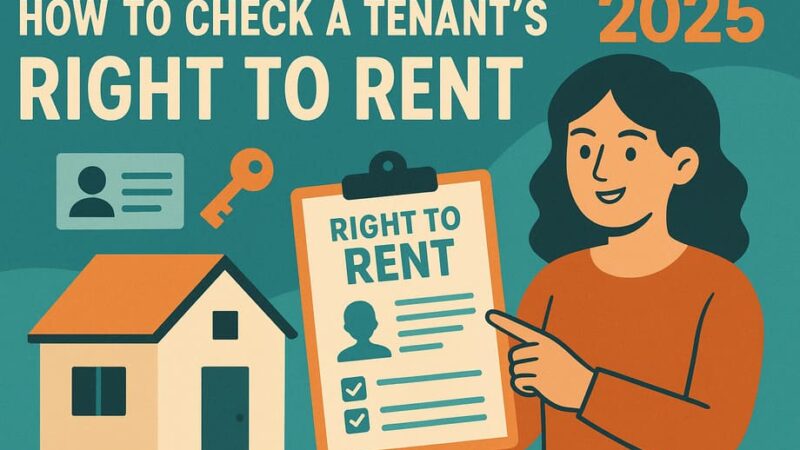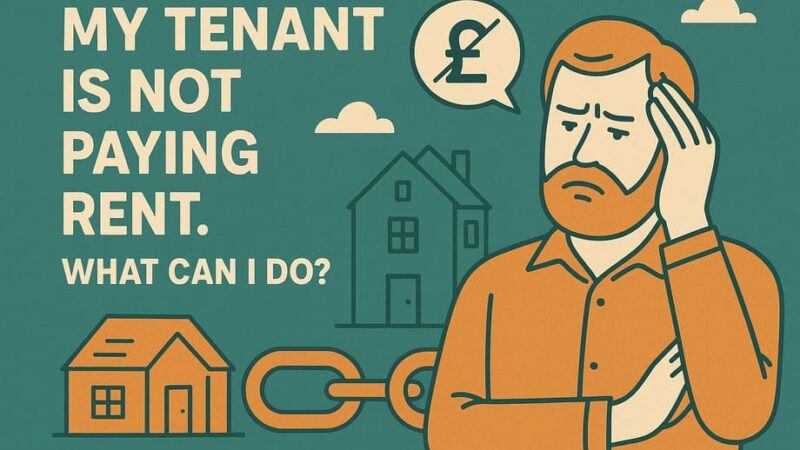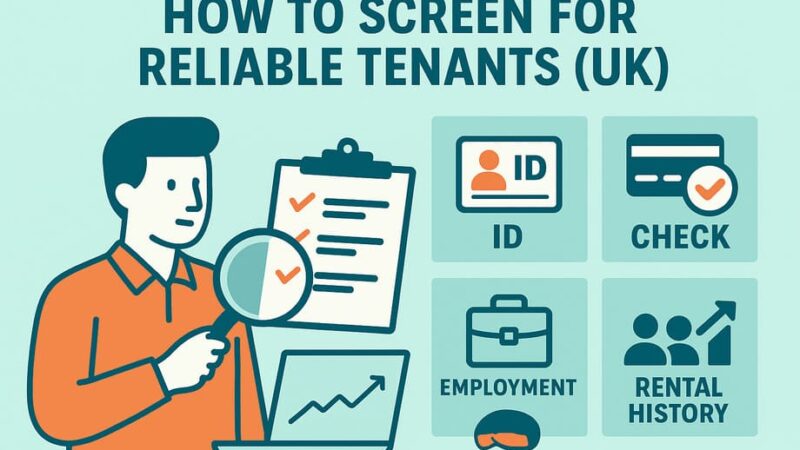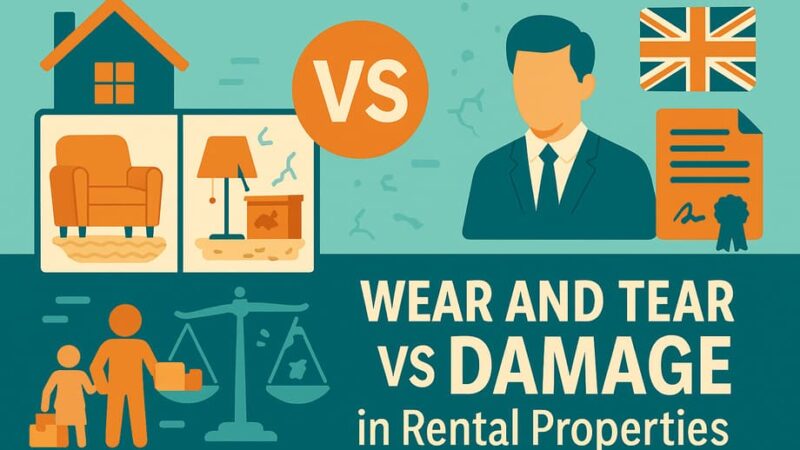How to Rent Out Your Property Without an Estate Agent in the UK
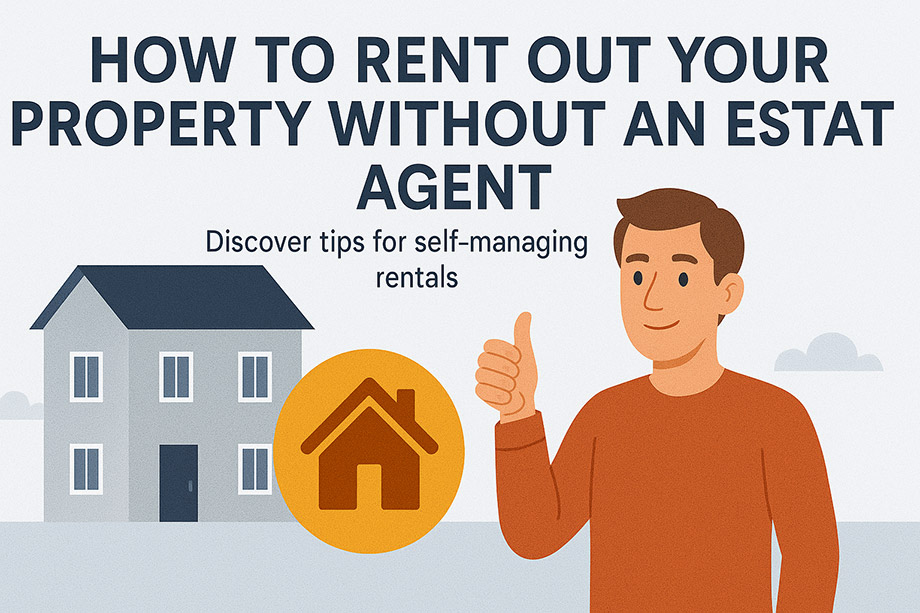
Renting out your property can be a fantastic way to generate extra income or grow your investment portfolio. Many landlords believe that using an estate agent is the only way to find tenants and manage their rental. However, this is not always true. Renting out your property without an estate agent is possible, often saves money, and gives you more control.
In this post, we’ll guide you through how to rent out your property on your own. You’ll learn how to prepare your home, advertise it effectively, screen tenants, and handle all the legal requirements. We’ll also introduce OpenRent, a popular platform that helps landlords self-manage with professional support.
Table of Contents
Why Rent Out Your Property Without an Estate Agent?
Estate agents do provide useful services but they come with fees, often taking between eight and fifteen percent of the monthly rent. These fees can quickly add up, especially if you have one or two properties.
Handling the rental yourself means you keep more of your rental income and maintain direct communication with your tenants. This can lead to quicker decisions and more control over your property.
At the same time, managing a rental requires time, patience, and knowledge of your legal responsibilities. If you are willing to learn and stay organised, the benefits can be well worth it.
Seven Tips to Rent Out Your Property Without an Estate Agent
If you’re ready to take on the role of landlord directly, here are seven practical tips to get you started.
1. Get Your Property Ready
Make sure your property is clean and in good repair. Fix any broken appliances, check smoke alarms, and tidy the garden. Small upgrades like a fresh coat of paint or new light fittings can make a big difference in attracting good tenants.
2. Set the Right Rent Price
Finding the right rent level is important. If you ask for too much, your property may stay empty. If it’s too low, you miss out on potential income. Check rental prices for similar properties nearby on sites like Rightmove, Zoopla, and OpenRent’s rent comparison tool.
3. Advertise Widely
Create a clear, detailed advert with good photos. Highlight key features such as transport links, local schools, and shops. Use multiple platforms like OpenRent, Gumtree, and Facebook groups to get maximum exposure.
4. Screen Tenants Carefully
Protect yourself by checking potential tenants thoroughly. Credit checks, employment verification, and references from previous landlords are vital. OpenRent offers affordable tenant referencing services that cover all these checks, making your decision easier.
5. Use a Proper Tenancy Agreement
Always use a written tenancy agreement that follows UK law. This contract protects you and your tenant by outlining rent, deposit, length of tenancy, and responsibilities. You can get legal, ready-to-use agreements through services like OpenRent.
6. Protect the Tenant’s Deposit
By law, you must protect your tenant’s deposit in a government-approved scheme within 30 days of receiving it. Failure to do this can lead to penalties. OpenRent automatically handles deposit protection when you use their platform.
7. Manage the Tenancy Responsibly
Collect rent on time, arrange repairs quickly, and complete required safety checks such as gas safety certificates every year. Keep good records and communicate openly with your tenants to build a good landlord-tenant relationship.
How OpenRent Can Help
If managing everything yourself seems daunting, OpenRent offers a great balance. This online platform is designed for landlords who want to self-manage but need some professional support.
With OpenRent, you can list your property once and have it appear on major sites like Rightmove and Zoopla. They provide tenant referencing, tenancy agreements, deposit protection, and online rent collection tools.
OpenRent saves you time and ensures your letting complies with the law, all while avoiding estate agent fees. You can get started easily with OpenRent through.
Pros and Cons of Renting Without an Estate Agent
| Pros | Cons |
|---|---|
| Save money on agent fees | Requires time and effort |
| Direct communication with tenants | Must manage legal responsibilities |
| More control over your property | Handling problems can be stressful |
| Use helpful platforms like OpenRent | Marketing and screening can be tough |
| Flexibility in how you manage | Need to stay updated on laws |
Deciding whether to self-manage depends on your situation, availability, and confidence with legal matters.
Final Thoughts
Renting out your property without an estate agent in the UK is very doable if you are organised and ready to learn. By preparing your property well, advertising effectively, screening tenants carefully, and following legal rules, you can manage your rental successfully and keep more of your income.
If you want some professional support without the high fees, platforms like OpenRent offer great tools that help you handle many tasks easily and stay compliant.
Remember, being a landlord takes responsibility and good communication, but it can also be rewarding and profitable.
Last Updated on July 21, 2025 by James Cartwright


